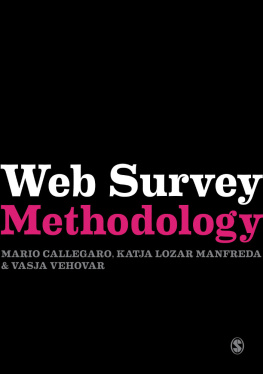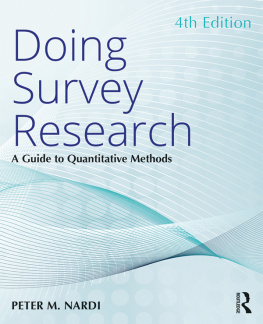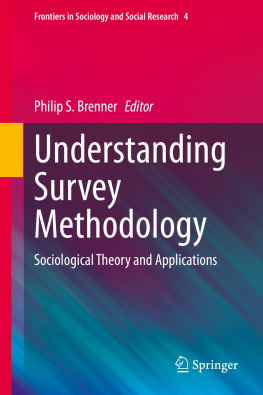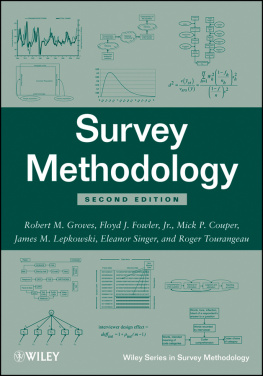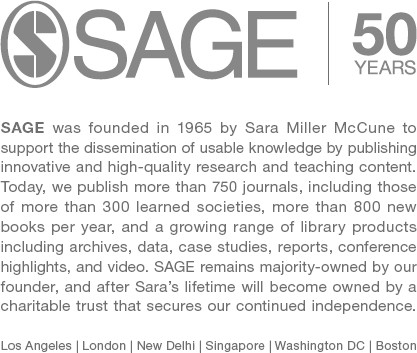Web Survey Methodology
Web Survey Methodology
- Mario Callegaro
- Katja Lozar Manfreda
- & Vasja Vehovar
Other

SAGE Publications Ltd
1 Olivers Yard
55 City Road
London EC1Y 1SP
SAGE Publications Inc.
2455 Teller Road
Thousand Oaks, California 91320
SAGE Publications India Pvt Ltd
B 1/I 1 Mohan Cooperative Industrial Area
Mathura Road
New Delhi 110 044
SAGE Publications Asia-Pacific Pte Ltd
3 Church Street
#10-04 Samsung Hub
Singapore 049483
Mario Callegaro, Katja Lozar Manfreda and Vasja Vehovar
First published 2015
Apart from any fair dealing for the purposes of research or private study, or criticism or review, as permitted under the Copyright, Designs and Patents Act, 1988, this publication may be reproduced, stored or transmitted in any form, or by any means, only with the prior permission in writing of the publishers, or in the case of reprographic reproduction, in accordance with the terms of licences issued by the Copyright Licensing Agency. Enquiries concerning reproduction outside those terms should be sent to the publishers.
Library of Congress Control Number: 2014951360
British Library Cataloguing in Publication data
A catalogue record for this book is available from the British Library
ISBN 978-0-85702-860-0
ISBN 978-0-85702-861-7 (pbk)
Editor: Katie Metzler
Assistant editor: Lily Mehrbod
Production editor: Ian Antcliff
Copyeditor: Neville Hankins
Proofreader: Sharon Cawood
Marketing manager: Sally Ransom
Cover design: Shaun Mercier
Typeset by: C&M Digitals (P) Ltd, Chennai, India
Printed and bound by CPI Group (UK) Ltd, Croydon, CR0 4YY
Preface
About the Web Survey Methodology book
Web surveys appeared soon after the web was launched, at the beginning of the 1990s, and today they are the prevailing mode of survey data collection. With them, it has become very easy to create a survey, almost as simple as writing and sending an email. Correspondingly, sometimes it appears that basic computer literacy is not only the necessary, but also the sufficient, skill for conducting a web survey.
However, conducting web surveys raises numerous practical and conceptual questions: Is a web survey suitable for my research problem? How do I recruit respondents from the general population? Can I generalize the obtained results if survey participants come from online social media? How many people can I expect to answer my survey? Which strategy will assure enough cooperation? How much time can a web questionnaire take? Should respondents be forced to answer every question? How do I select the right web survey software? How do I adapt to respondents answering from a smartphone?
There are hundreds of questions like these and competent responses require the understanding of many issues, from changing technologies to various methodological specifics. Very often, there are no simple answers. Common sense alone is not enough for many of these situations. A recipe book would not suffice either, because there are too many issues and they are often too complex. Instead, knowledge and broader understanding of the subject matter are needed to provide the right orientation and the proper grounds for developing methodologically sound solutions, which then effectively respond to specific web survey circumstances with corresponding creativity. Providing such knowledge and understanding is the very aim of this book.
The book presents a dedicated treatment of web survey methodology, bringing evidence-based and comprehensive insight into all aspects of the web survey process. This is different from many other publications in this field, which often address only selected parts of web survey methodology, or discuss it only as a specific issue within a broader methodological treatment.
The book starts with introductory definitions and a conceptual outline of the web survey process ( concludes the book.
The WebSM website (www.websm.org), which accompanies this book, contains various supplementary material, where concepts are further elaborated with examples (e.g. sample size calculations) and illustrations (e.g. interactive insight into question types), additional literature reviews, as well as some practical rules, recommendations and highlights in manual-like formats.
Throughout the text our overriding aim was to make sure that, for every issue discussed, we presented not only the key concepts and an up-to-date literature review, but also an articulated reflection on the related state of the art, as well as recommendations for practice. This was often very demanding, particularly where empirical evidence is weak, inconclusive or contradictory. As a result, the book provides overall an evaluation of and guidance on all important aspects of web survey methodology so it can therefore serve as a reference manual for methodological issues arising in web survey practice.
We have sought a delicate and sometimes impossible balance of combining an academic writing style with the applied practitioner style, taking advantage of the different backgrounds and positions of the three of us in both the business world and the academic sector. Besides conceptualizing the web survey process, we thus also address all key practical problems, from selection of the question format to technical settings for sending email invitations. We should add here that the applied style of a manual of guidelines was not the aim of this book; however, the corresponding guidance is being gradually developed on the WebSM.
Another difficult balance was sought by focusing on general web survey methodology principles, which are equally relevant for simple web surveys, as well as for complex settings in dedicated survey data collection organizations.
We should make it clear that web survey methodology is firmly rooted in general survey methodology, so its corresponding essential concepts are also introduced in the book, while for a broader insight we refer to relevant methodological textbooks. Our aim is to include general survey methodology issues to a sufficient extent so that the book can serve as a stand-alone textbook on web survey methodology.
While knowledge at the level of introductory courses in methodology or statistics is assumed as a general prerequisite, the concepts are introduced gradually and sections which assume more statistical and methodological knowledge as well as sections which assume familiarity with web survey practice are provided with supplementary material on WebSM. The book should therefore be suitable also for readers with little formal education in methodology or statistics but with rich experience of web surveys, and for readers who have a formal education but lack corresponding practice. Within this context, we will use the term

